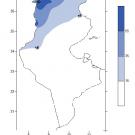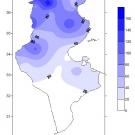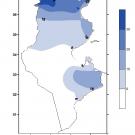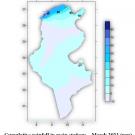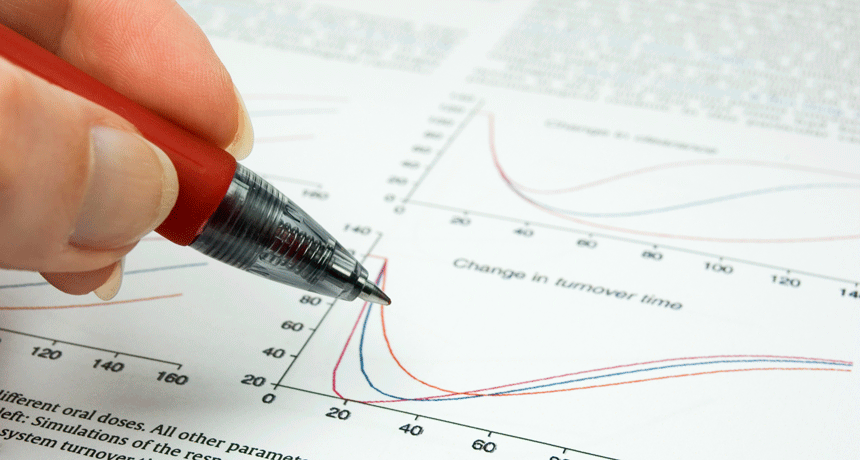
The Air Quality during the Confinement and Coronavirus 2020–2021 Period The Case of Tunisia
The Air quality has improved considerably in Tunisia and around the world during periods of general confinement:
A scientific study, prepared at the National Institute of Meteorology and recently published in an American scientific journal -, Environmental Sciences Proceedings - showed a significant improvement of the air quality during the first confinement. A significant decrease in nitrogen dioxide (NO2), carbon monoxide (CO) and sulfur dioxide (SO2) has been observed following the decrease in human activities in many Tunisian regions, especially in the north and the centre. A decrease of more than 40% of these pollutants was reported during the first pandemic wave. This decrease is mainly linked to the pollutant emission decrease from road, air and maritime traffic and industrial zones which emit an enormous quantity of pollutants, in particular in the northern regions and those of Sfax and Gabès. Also, a decrease of about 50% of these pollutants was observed during the third pandemic wave. Consequently, the air quality has improved dramatically in Tunisia and around the world.







